The terrifying rise of nationalist villains in India
Trump's nationalist rhetoric has consequences. Just look at India.
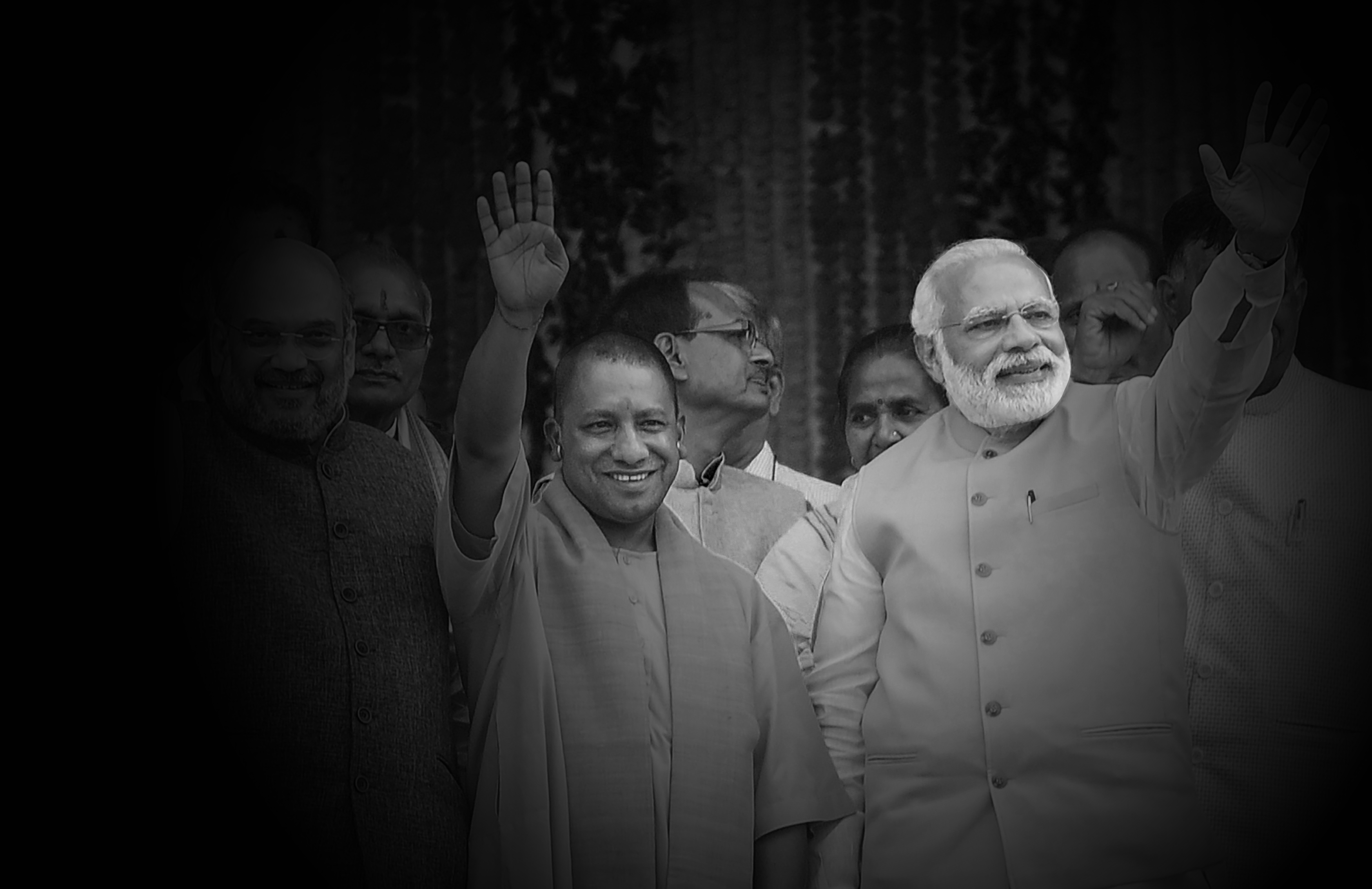

They say that when America sneezes, other parts of the world catch pneumonia. That certainly seems to be the case in India, where President Trump's anti-Muslim attitude is spreading like a virus.
Last week, Indian Prime Minister Narendra Modi appointed Yogi Adityanath, the country's most vitriolic anti-Muslim Hindu priest, as chief minister (the governor, essentially) of Uttar Pradesh, the state that houses the world's greatest Muslim monument, the Taj Mahal. This is tantamount to appointing the grand wizard of the Ku Klux Klan the governor of Illinois — really — and would have been simply unimaginable without Trump in the White House.
What's most distressing about this is that America is clearly losing its soft power to spread pluralism, tolerance, and other liberal values by its example. Instead of remaining a beacon for protecting vulnerable minorities, Trump's America seems to be turning into a giant green light for minorities' persecution around the world.
The Week
Escape your echo chamber. Get the facts behind the news, plus analysis from multiple perspectives.

Sign up for The Week's Free Newsletters
From our morning news briefing to a weekly Good News Newsletter, get the best of The Week delivered directly to your inbox.
From our morning news briefing to a weekly Good News Newsletter, get the best of The Week delivered directly to your inbox.
Modi rose to power three years ago because he promised Indians, frustrated with the glacial pace of growth, that he'd turn their country into a Hong Kong-style economic powerhouse. But he is an ardent Hindu nationalist, and the fear has always been that he is less serious about development than foisting a retrograde version of Hinduism on India. He cut his political teeth in the RSS, the militant wing of his Bharatiya Janta Party, whose sole reason for existence is inciting the country's majority Hindu population against Muslims and other minorities. Modi hailed the 1992 destruction of Babri Masjid — a 16th-century mosque in Uttar Pradesh — by a Hindu mob as a great "awakening" against Muslim invaders who allegedly planted the structure on the birthplace of the Hindu god Ram to taunt Hindus. Ten years later, after he became the chief minister of Gujarat, his state witnessed one of the worst Muslim pogroms in recent history. More than 1,000 Muslim men, women, and children were ruthlessly slaughtered.
Since he assumed national office, Modi has traded open incitement against Muslims for a posture of strategic ambiguity, communicating with his Hindu followers through pregnant silences. When BJP's Hindu "cow vigilantes" (Hindus regard cows as sacred) hauled out an aged Muslim man from bed and bludgeoned him to death for allegedly eating beef, it took Modi several days to issue a lame condemnation (Yogi Adityanath, on the other hand, vociferously defended the killing and even recommended that the dead man's family be prosecuted for possessing the meat). Modi has done nothing to squelch BJP's baseless claims that Muslim men are using "love jihad" to spread their faith by deliberately seducing Hindu girls. Nor has he done a thing about his party's efforts to browbeat Muslims and Christians into converting to Hinduism in large mass public ceremonies. He did, however, declare Christmas "good governance day" when government employees would be required to work while leaving all official Hindu holidays unmolested.
In Uttar Pradesh, India's most populous state, Modi ran a two-pronged campaign in recent state elections, emphasizing his message of economic prosperity for all before mixed audiences while whipping up Hindu grievances before Hindu crowds. For example, he accused the deposed ruling party of buying Muslim votes by giving free handouts to Muslims but nothing to Hindus. So diabolically effective was Modi's message that the BJP won 325 out of 405 seats in the state legislature simply by unifying the Hindu vote, till now deeply divided along caste lines.
Still, the hope was that after his resounding victory, Modi would start pulling back from his divisive rhetoric. But Yogi Adityanath's appointment suggests that the mask is finally coming off, and Modi is preparing to launch a much more aggressive phase of Hindu nationalism.
A free daily email with the biggest news stories of the day – and the best features from TheWeek.com
Adityanath, who commands a huge Hindu following in his state, has pledged not only to build a temple where the razed mosque stood but also place statues of Hindu gods in every Muslim mosque. But that's not even the worst part. He makes no bones about his ethnic cleansing agenda and speaks openly about the need to reduce Uttar Pradesh's 40 million-strong Muslim population — about 20 percent of the total — by at least half. Nor is he shy about how he plans to accomplish this. He reminds Hindus of their duty to "take out 100 Muslim girls for every Hindu girl they take out" and kill "100 Muslims for every Hindu they kill," and taunts those who have moral qualms as "eunuchs." Such incitement, which is by no means his worst, has landed the yogi, who obscenely ran on a law-and-order agenda, in jail a few times.
Trump's calls for a Muslim ban and "extreme vetting" have emboldened men like Adityanath, who has repeatedly recommended similar steps in India — except that he doesn't have in mind wimpy measures like creating a Muslim registry or barring Muslims from only a few countries. Indeed, within a week of assuming office, he had already embarked on a campaign of anti-Muslim harassment, shutting down and burning "illegal" slaughterhouses, and throwing 650,000 predominantly Muslim men out of work.
For now, however, Muslims don't have to fear what Adityanath does so much as what he doesn't do — namely, protect them from private harassment and violence by the Hindu thugs his campaign mobilized. Indeed, in one town, pamphlets started circulating the day after his appointment asking Muslims to leave by year's end. "If you do not do so, we will do things in this village, similar to what Trump has been doing in America because Uttar Pradesh will now have a BJP government," it reads. "So decide soon because you are no longer suitable for this village." This might simply be a horribly ill-advised prank, as the police claim, but it nevertheless signals a major shift in India. And should a Muslim retaliate to the relentless provocation under Adityanath, the Hindu backlash might be explosive.
Trump is directly responsible for none of this, of course. But it is incontrovertible that illiberal leaders around the world are emboldened by his example.
This is not merely because Trump has neither the interest nor the moral clout to call them out and deny them international respectability, something that Modi and others desperately crave. It is because the rest of the world sets its moral compass by looking at America. Most Americans don't fully appreciate this, but the moral progress that this country has made by invoking its own principles — liberty, justice, equality, tolerance, religious pluralism — to fight slavery, Jim Crow, and segregation has been the main driver of liberalism around the world over the last several decades. America has offered persecuted groups a moral vocabulary and a modus operandi for securing their rights and holding their regimes accountable.
If America can't hang on to its values while dealing with terrorism, economic downturn and other challenges, there will be little hope for the rest of the world. Modi's India may be the first domino to fall. But unless America does a fairly quick course correction, it won't be the last — or the ugliest.
Shikha Dalmia is a visiting fellow at the Mercatus Center at George Mason University studying the rise of populist authoritarianism. She is a Bloomberg View contributor and a columnist at the Washington Examiner, and she also writes regularly for The New York Times, USA Today, The Wall Street Journal, and numerous other publications. She considers herself to be a progressive libertarian and an agnostic with Buddhist longings and a Sufi soul.
-
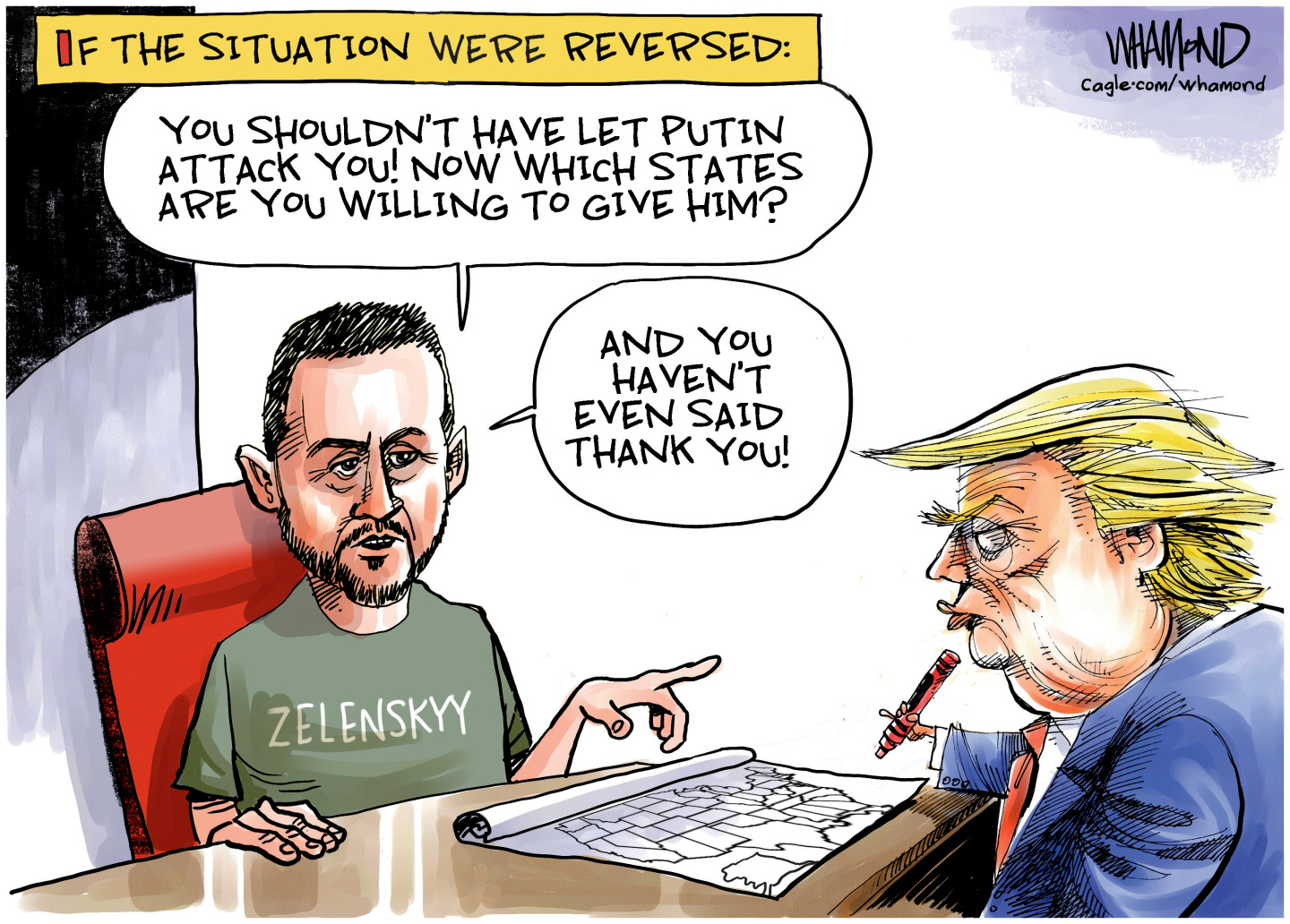 August 30 editorial cartoons
August 30 editorial cartoonsCartoons Saturday’s political cartoons include Volodymyr Zelenskyy and Donald Trump's role reversal and King George III
-
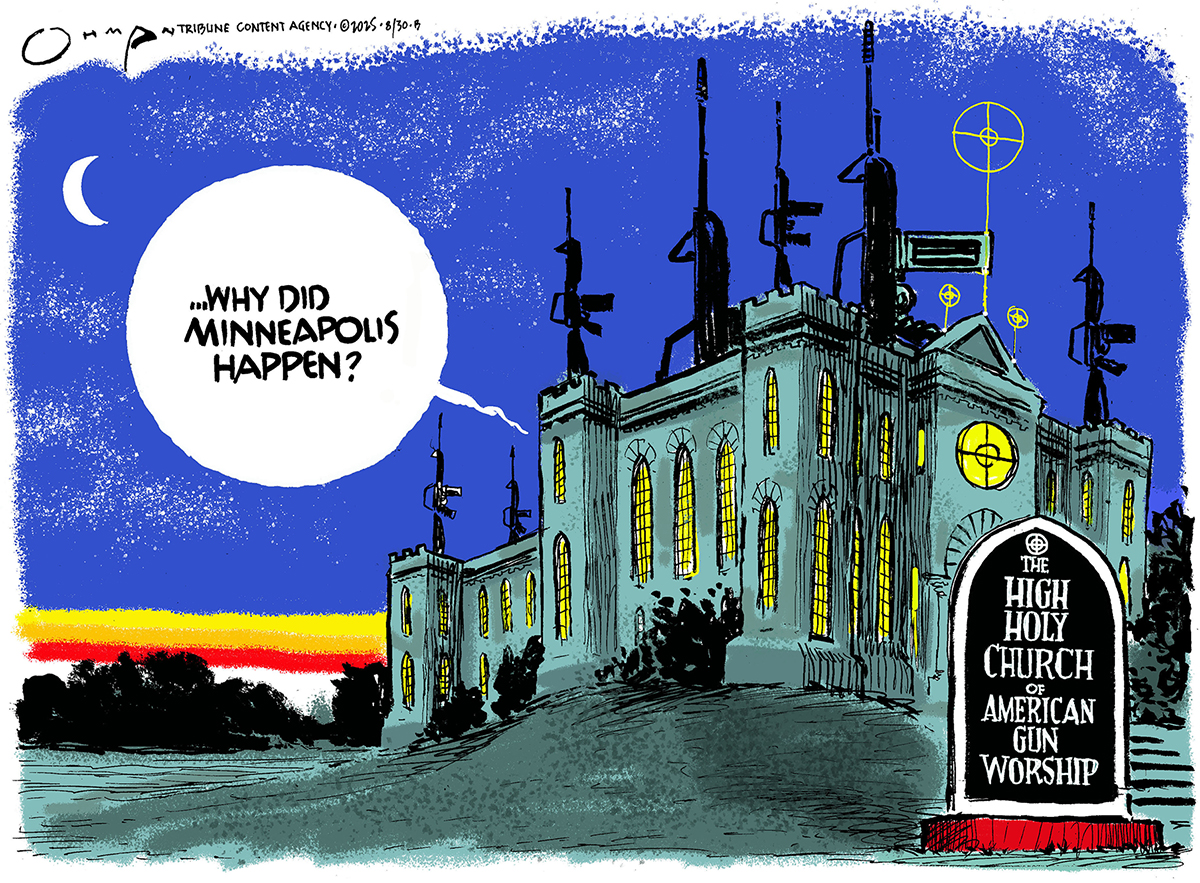 5 bullseye cartoons about the reasons for mass shootings
5 bullseye cartoons about the reasons for mass shootingsCartoons Artists take on gun worship, a price paid, and more
-
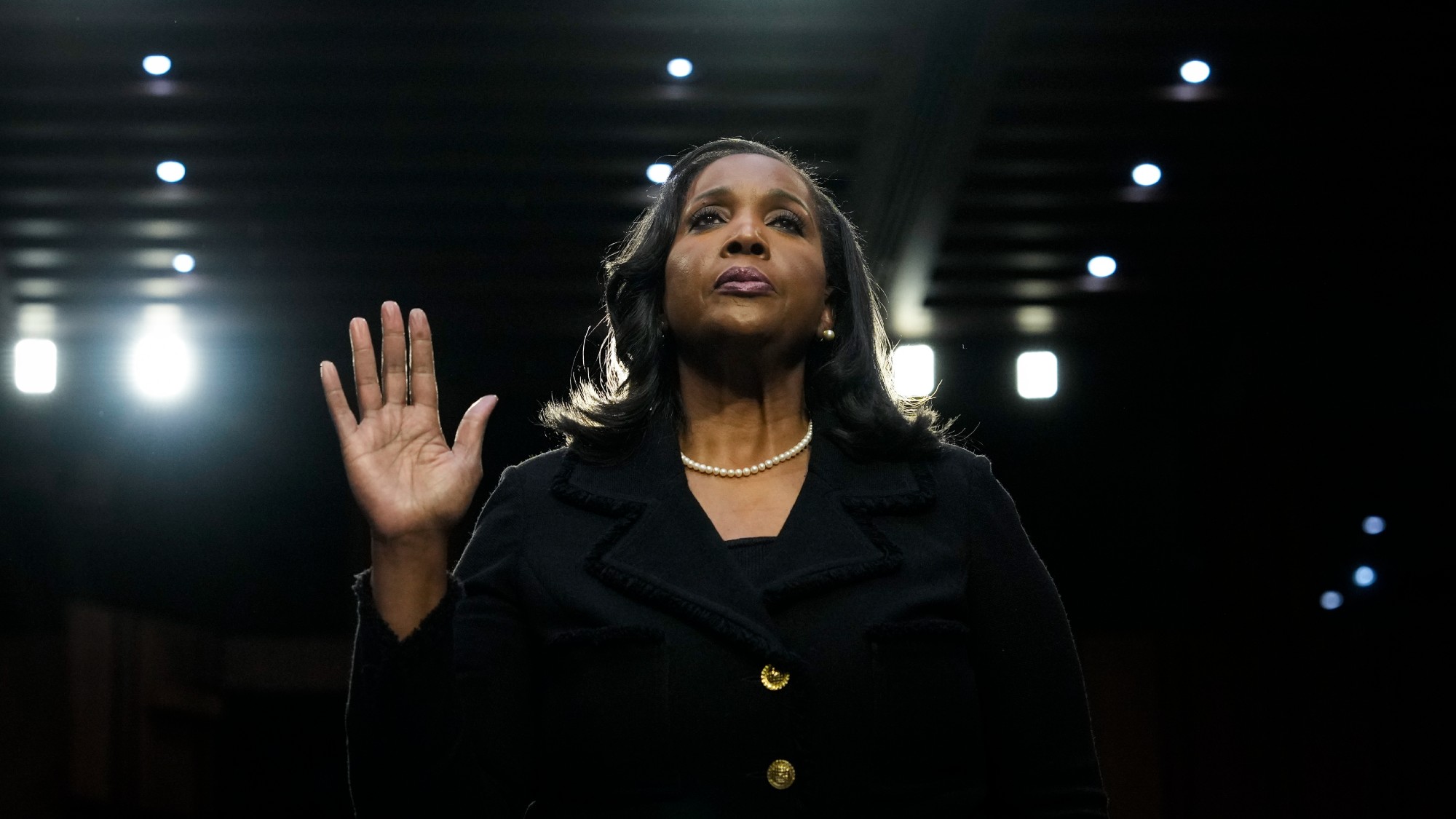 Lisa Cook and Trump's battle for control the US Fed
Lisa Cook and Trump's battle for control the US FedTalking Point The president's attempts to fire one of the Federal Reserve's seven governor is represents 'a stunning escalation' of his attacks on the US central bank
-
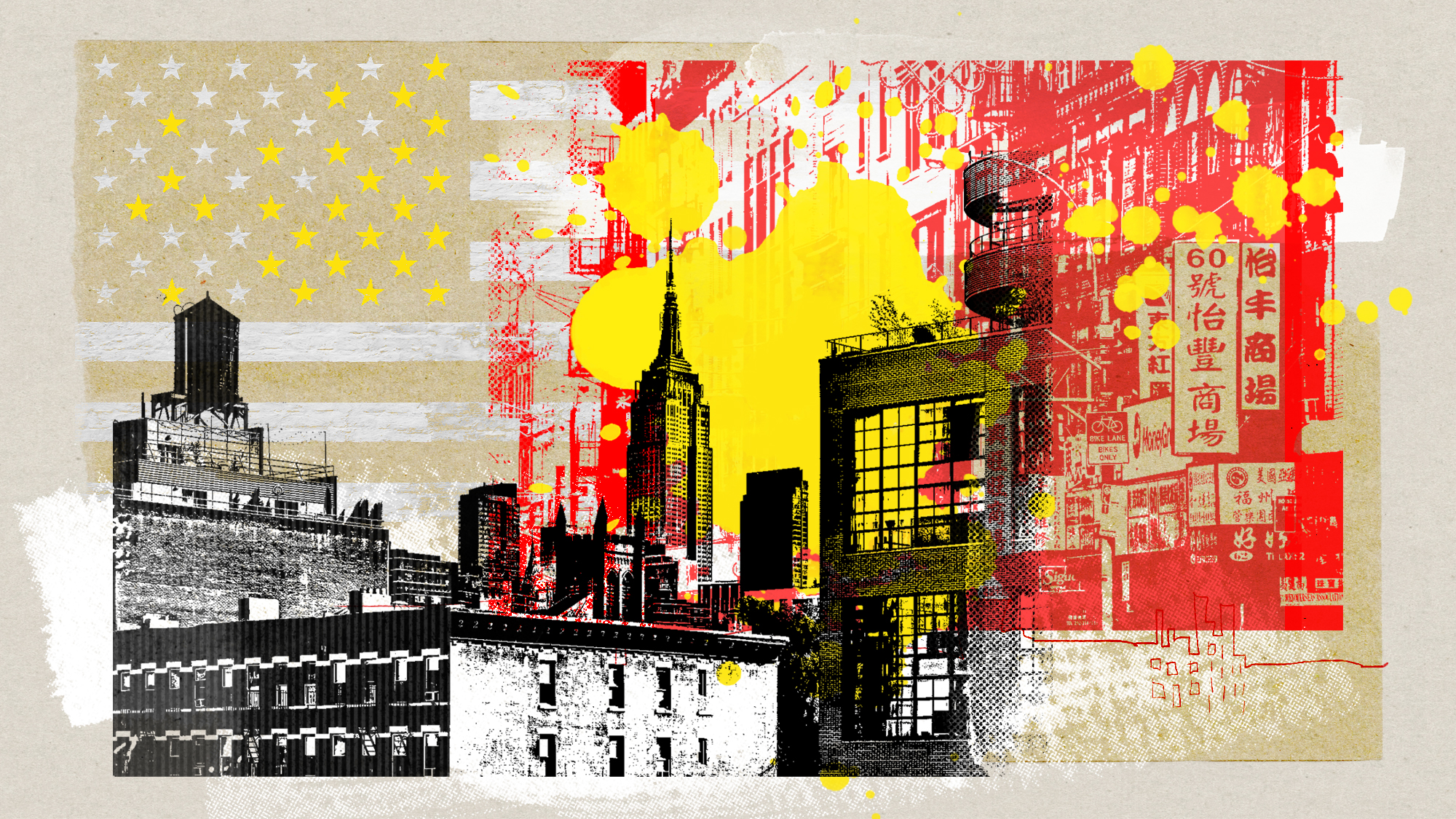 China is silently expanding its influence in American cities
China is silently expanding its influence in American citiesUnder the Radar New York City and San Francisco, among others, have reportedly been targeted
-
 How China uses 'dark fleets' to circumvent trade sanctions
How China uses 'dark fleets' to circumvent trade sanctionsThe Explainer The fleets are used to smuggle goods like oil and fish
-
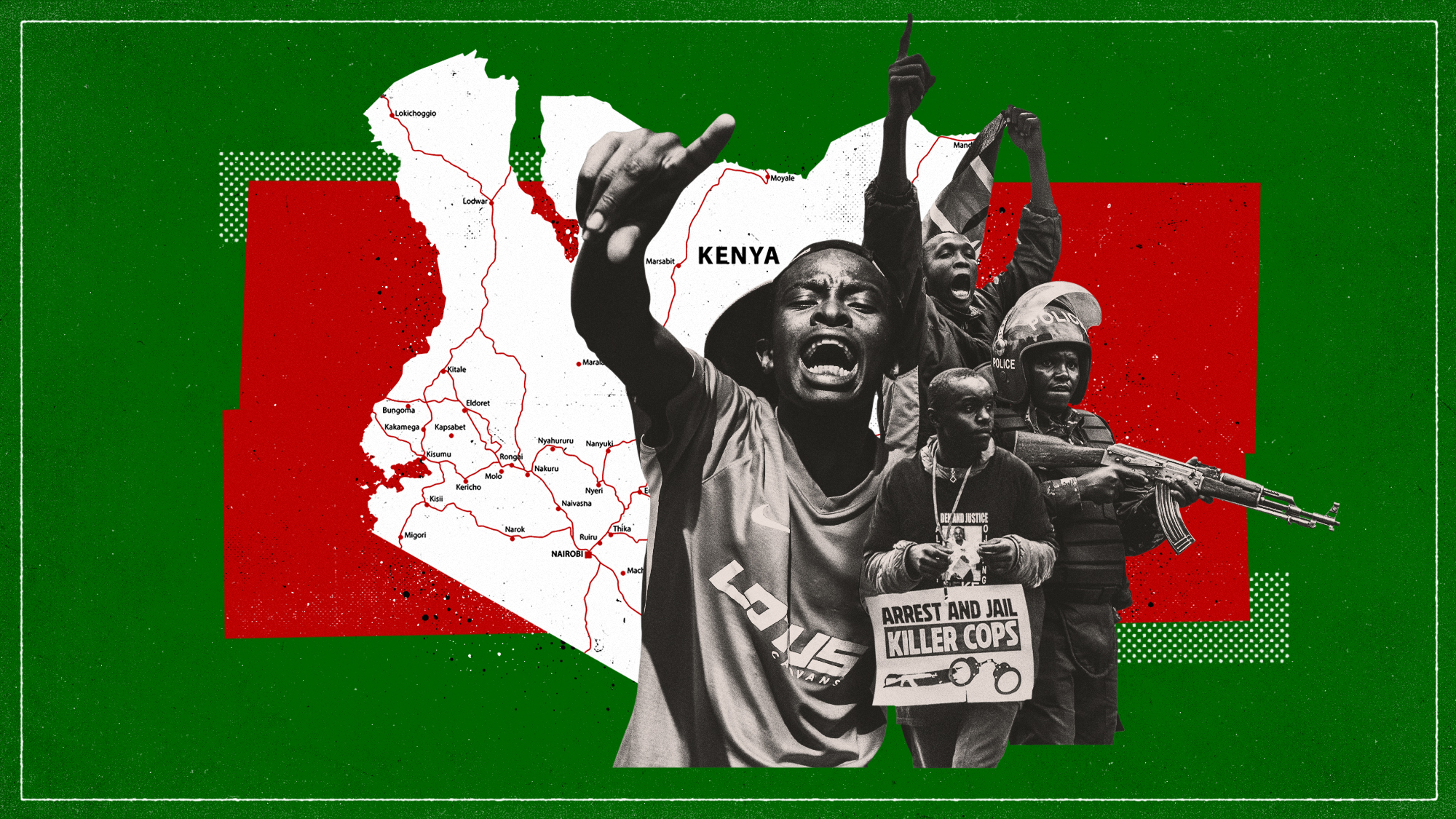 One year after mass protests, why are Kenyans taking to the streets again?
One year after mass protests, why are Kenyans taking to the streets again?today's big question More than 60 protesters died during demonstrations in 2024
-
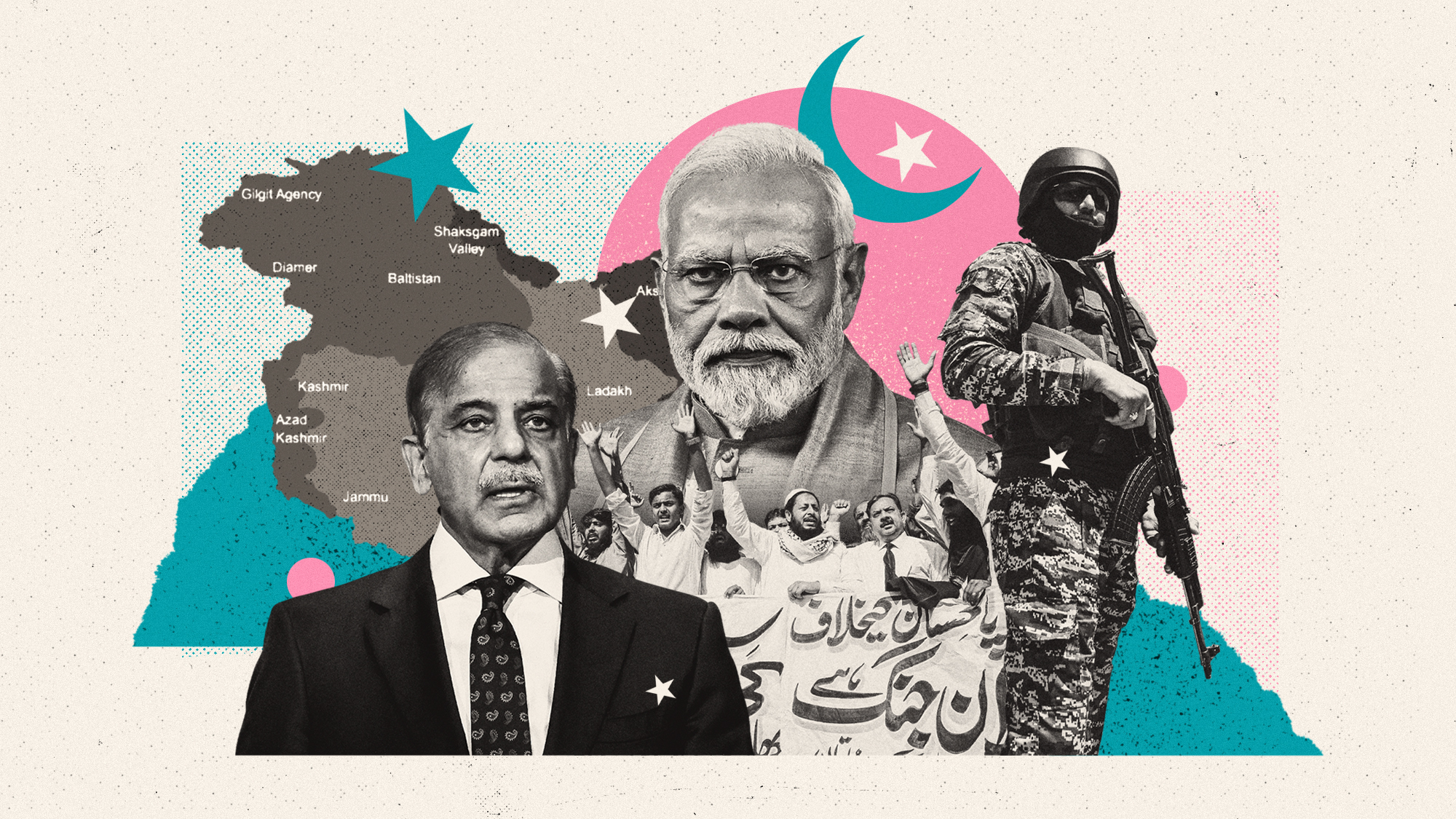 What happens if tensions between India and Pakistan boil over?
What happens if tensions between India and Pakistan boil over?TODAY'S BIG QUESTION As the two nuclear-armed neighbors rattle their sabers in the wake of a terrorist attack on the contested Kashmir region, experts worry that the worst might be yet to come
-
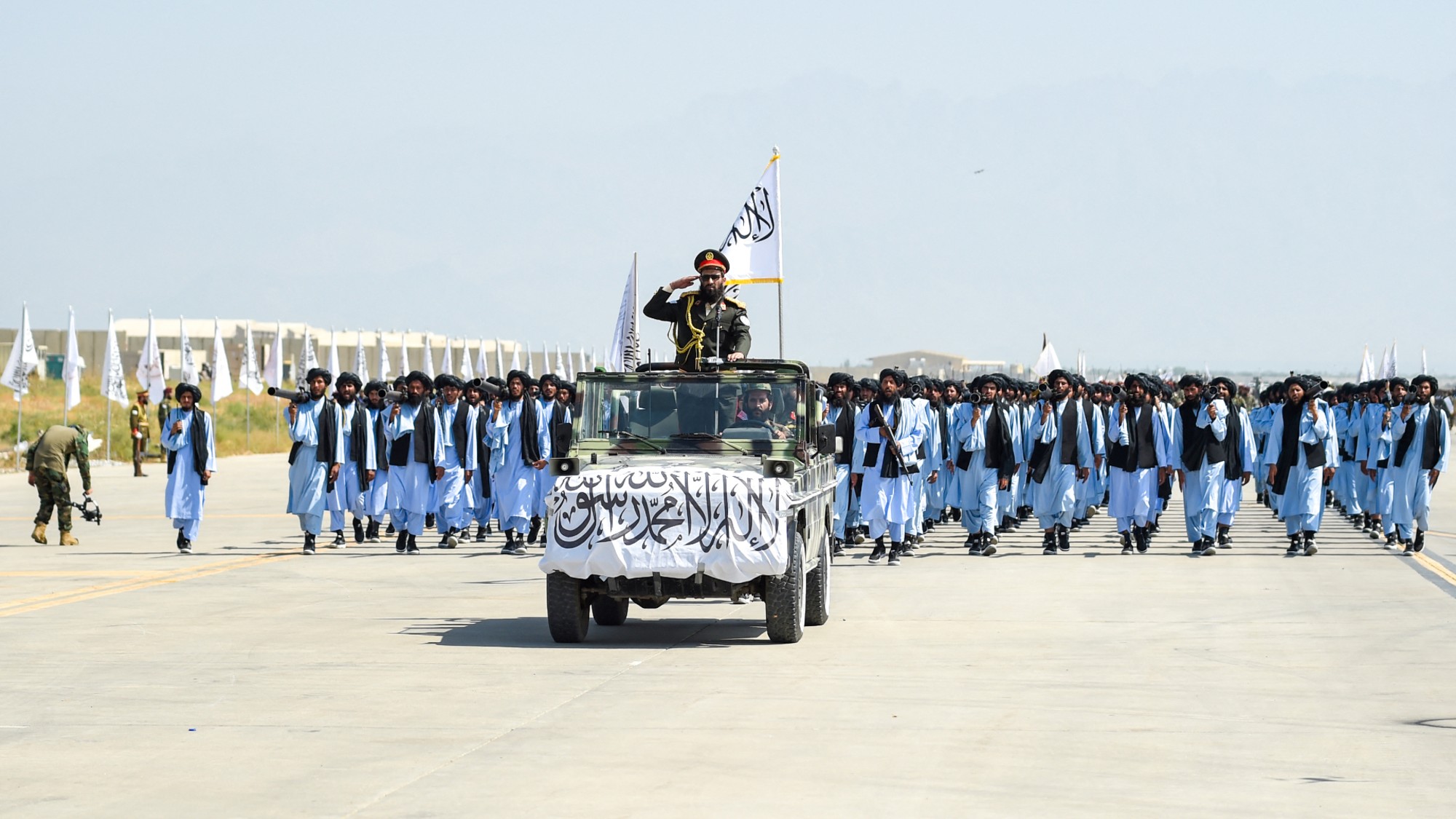 Why Russia removed the Taliban's terrorist designation
Why Russia removed the Taliban's terrorist designationThe Explainer Russia had designated the Taliban as a terrorist group over 20 years ago
-
 Inside the Israel-Turkey geopolitical dance across Syria
Inside the Israel-Turkey geopolitical dance across SyriaTHE EXPLAINER As Syria struggles in the wake of the Assad regime's collapse, its neighbors are carefully coordinating to avoid potential military confrontations
-
 'Like a sound from hell': Serbia and sonic weapons
'Like a sound from hell': Serbia and sonic weaponsThe Explainer Half a million people sign petition alleging Serbian police used an illegal 'sound cannon' to disrupt anti-government protests
-
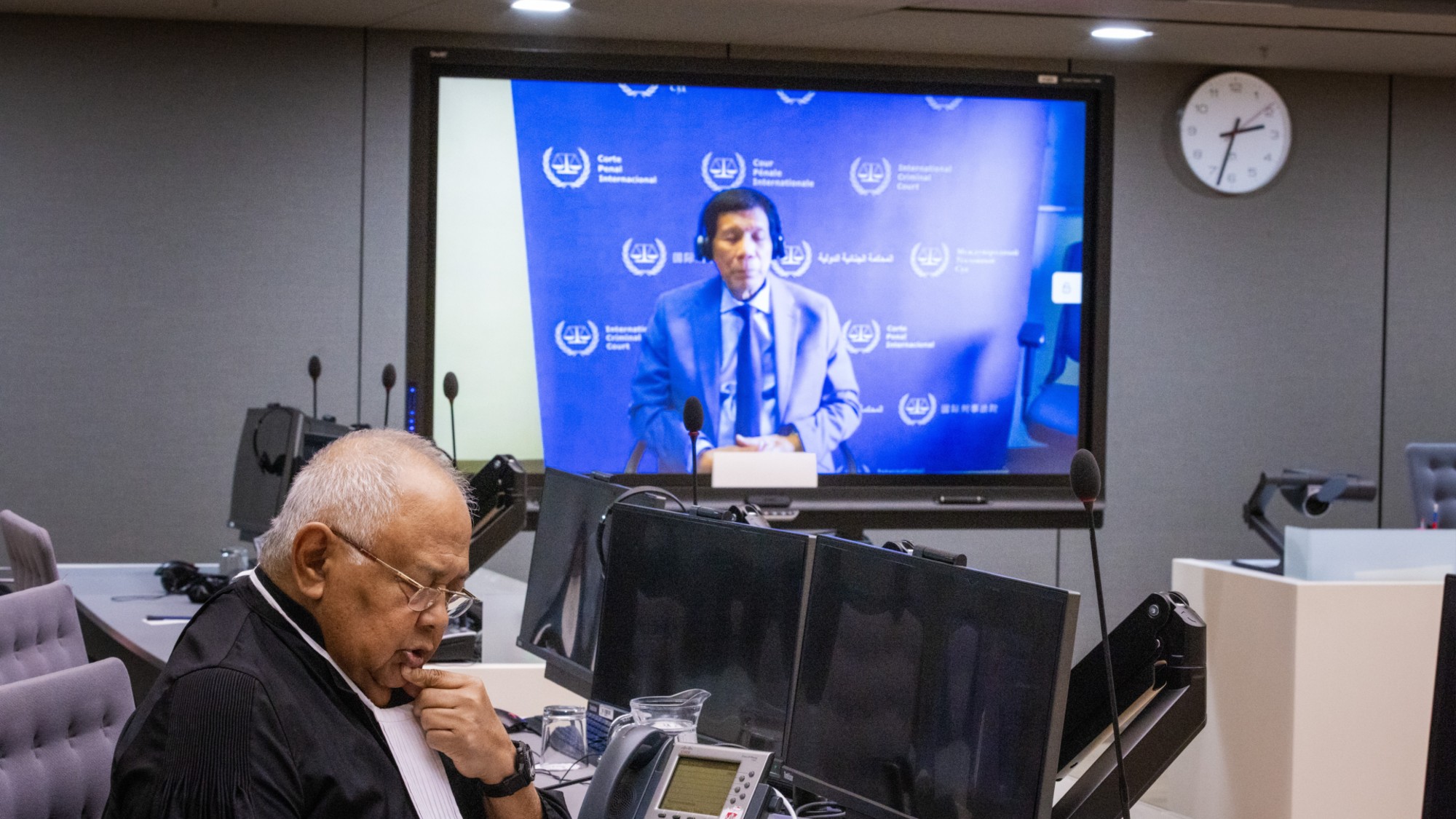 The arrest of the Philippines' former president leaves the country's drug war in disarray
The arrest of the Philippines' former president leaves the country's drug war in disarrayIn the Spotlight Rodrigo Duterte was arrested by the ICC earlier this month
